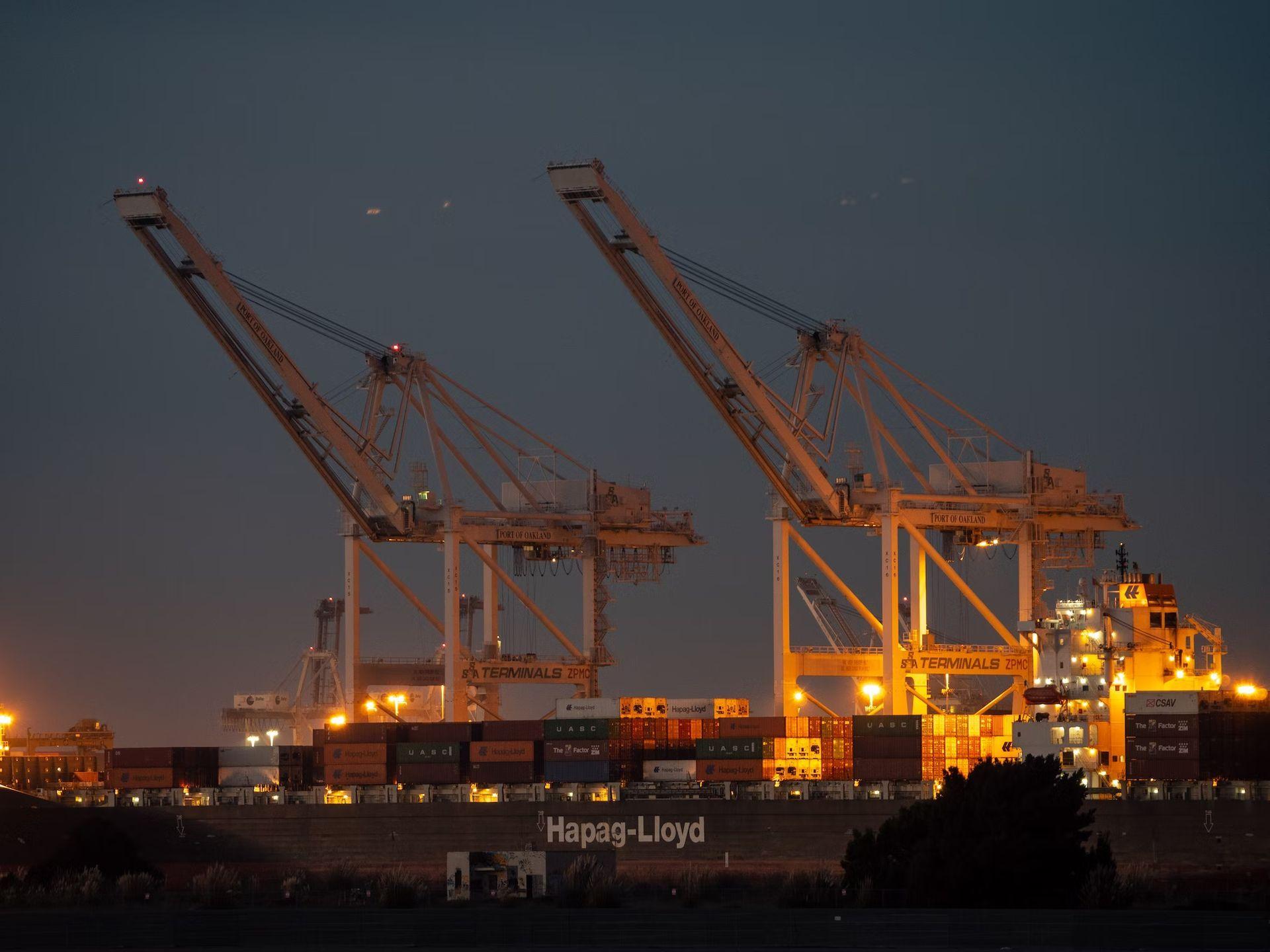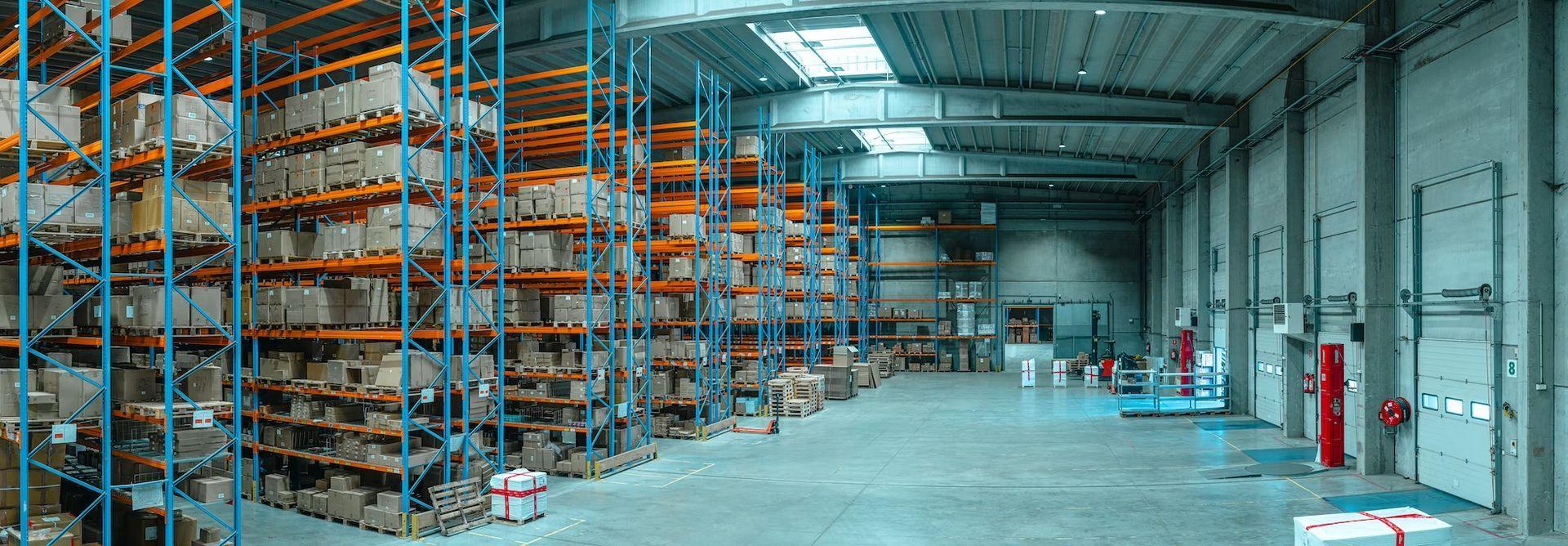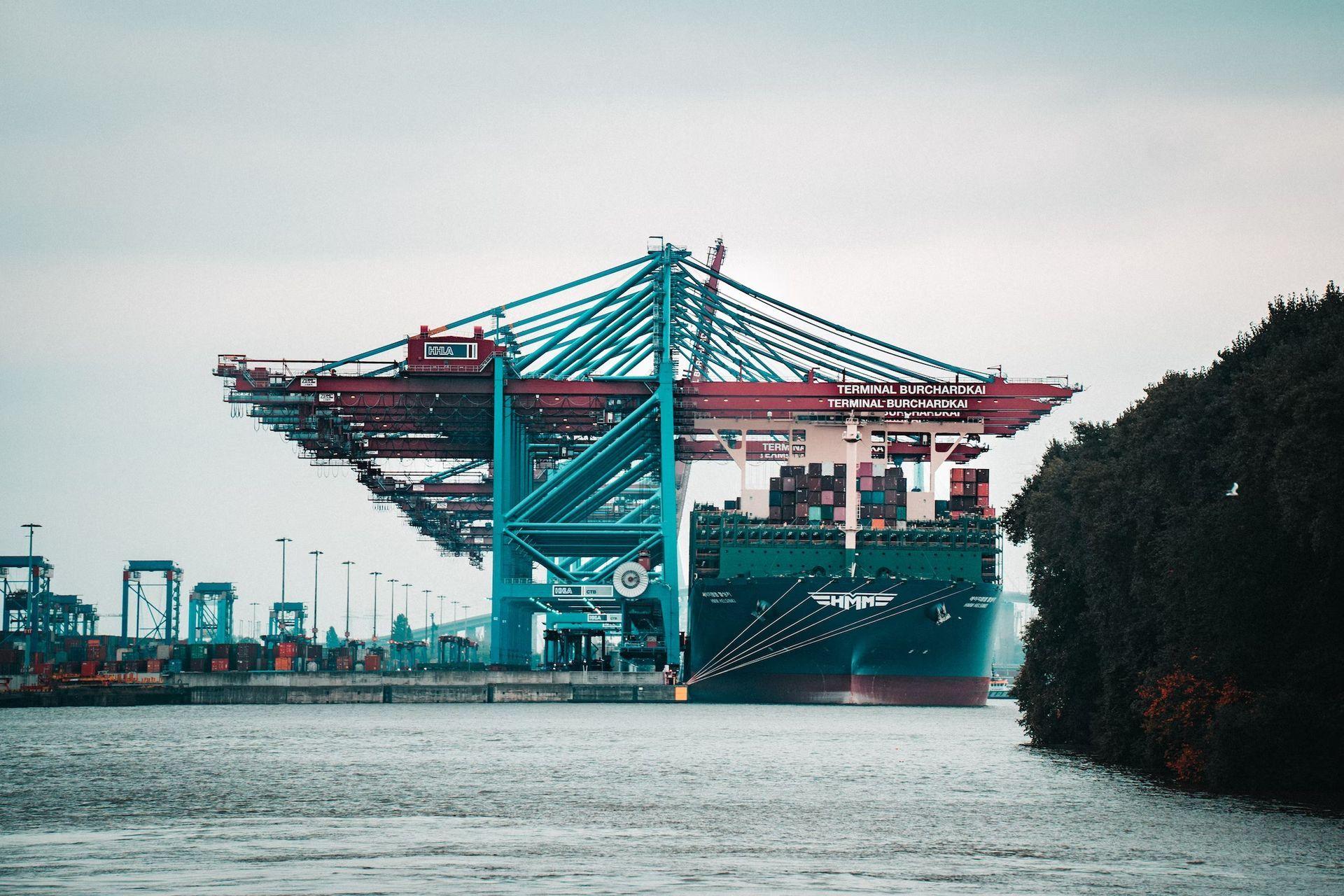Supply chain professionals believe that artificial intelligence will be a “game changer” for their industry. Supply chain management is a critical aspect of business operations that involves planning, coordinating, and controlling the movement of goods and services from suppliers to customers. It is a complex process that requires the integration of various functions such as procurement, production, logistics, and distribution. Effective logistics network management is essential for ensuring that goods and services are delivered to customers on time, at the right place, and at the right price.
In today’s highly competitive business environment, companies that don’t have an efficient supply chain management system are at a disadvantage. Managing and optimizing the flow of goods and services is crucial for meeting customers’ demands and staying ahead of the competition. Without effective logistics network management, companies may struggle to keep up with the fast-paced changes in the market and may miss out on opportunities to grow their business.
Furthermore, the increasing demand for transparency and traceability in the logistics network, the need to monitor and comply with regulations, and the need to optimize the use of resources are making the supply chain more complex and harder to manage. In this context, Artificial Intelligence (AI) can be a game-changer. AI can provide businesses with the tools they need to manage and optimize their logistics network operations. It can help companies to forecast demand, predict outcomes, optimize routes, manage inventory, automate tasks, and monitor security and compliance.
What’s the future of AI in supply chain management?
The future of AI in supply chain management looks promising. As technology advances and data becomes more readily available, AI will likely play an increasingly important role in logistics network operations. One potential future development is increased automation. AI will continue automating demand forecasting, route optimization, and inventory management tasks, allowing companies to operate more efficiently. Predictive analytics is another area where AI will become increasingly sophisticated. It will be able to predict demand and identify patterns, allowing companies to make better-informed decisions.
Real-time monitoring is another area that is expected to see significant growth in the future. AI-enabled sensors and IoT technology will allow companies to monitor their supply chain operations in real time, providing valuable insights that can inform decision-making. Additionally, Collaborative AI will connect different parts of the logistics network and collaborate with partners, suppliers, and customers to optimize operations. It will allow the companies to share data and insights in real time, resulting in more efficient and effective supply chain operations.

Advanced Robotics is another area where artificial intelligence will play a vital role. AI will be integrated with advanced robotics and autonomous vehicles to handle order picking, packing, and transportation tasks. This will result in more accurate and efficient operations while reducing labor costs. Finally, Blockchain technology integration will be another area of focus in the future. AI will be integrated with blockchain technology to make the logistics network more transparent and secure. This will allow companies to track products and materials as they move through the logistics network in real time, providing greater visibility and security.
The future of AI in supply chain management is promising, and the technology will likely continue to play an important role in optimizing operations and helping companies compete in an increasingly competitive global market. As the industry adapts and evolves, artificial intelligence will be a key component in developing new technologies and processes that will shape the future of logistics network management.
Benefits of AI in supply chain and logistics management
AI can bring many benefits to supply chain and logistics management. Some of these benefits include:
- Efficient operations: Artificial intelligence can automate tasks such as demand forecasting, route optimization, and inventory management, allowing companies to operate more efficiently.
- Reduced costs: By automating tasks and identifying inefficiencies, AI can help companies reduce labor and transportation costs.
- Increased revenue: By improving efficiency and reducing costs, artificial intelligence can help companies increase revenue and improve their bottom line.
- Better decision-making: AI algorithms can analyze data to identify trends and patterns, providing companies with valuable insights that can inform strategic decision-making.
- Improved customer service: Artificial intelligence can help companies improve their responsiveness to customer needs, for example, by providing real-time tracking information to customers.

Disadvantages of AI in supply chain and logistics management
While AI can bring many benefits to supply chain and logistics management, there are also challenges and considerations to keep in mind when implementing AI:
- Complexity: Implementing artificial intelligence in logistics network and logistics management can be complex and requires a significant investment in technology and resources.
- Data quality: AI algorithms require high-quality data to function effectively. Ensuring that data is accurate and complete can be a challenge.
- Human resources: Implementing artificial intelligence can require retraining employees and finding new talent with the necessary skills.
- Security and compliance: AI systems can be vulnerable to cyber threats, and it’s important to ensure that data is protected and that the company complies with relevant regulations.
- Ethical considerations: As artificial intelligence becomes more integrated into the supply chain and logistics management, it’s important to consider the ethical implications of its use and to ensure that it’s used in a responsible and fair manner.
Real-world examples of artificial intelligence in supply chain management
One of the most exciting aspects of AI in supply chain management is its wide range of real-world applications. From forecasting demand to optimizing routes and managing inventory, AI is being used to improve every aspect of the logistics network.
Demand forecasting is one of the most common applications of artificial intelligence in supply chain management. By analyzing historical data and identifying patterns, AI algorithms can predict future product demand. This helps companies ensure that they have the right amount of inventory on hand, reducing the risk of stockouts and overstocking.
NB-IoT will shape the future of smart cities
Another popular application of AI in logistics network management is route optimization. By analyzing data on traffic, weather, and other factors, AI algorithms can identify the most efficient routes for delivery trucks, reducing transportation costs and improving delivery times.
Artificial intelligence is also being used to improve warehouse operations. Robotics and computer vision technology can be used to automate tasks such as picking and packing, increasing efficiency and reducing labor costs.
AI can also be applied to security and compliance by monitoring and analyzing data to identify potential breaches in security or non-compliance and alerting the relevant parties.

Which companies are using AI in supply chain management?
A handful of companies offer artificial intelligence solutions in supply chain and logistics.
Coupa
Coupa provides a range of AI and digital tools that allow logistics network companies to make informed decisions based on data. The Supply Chain Modeler, in particular, allows businesses to gather logistics information and predict outcomes by simulating different scenarios. Additionally, the AI-powered features consider external factors such as tariffs and natural events, enabling companies to evaluate potential risks and make necessary adjustments to their logistics network operations.
Epicor
Epicor utilizes Microsoft Azure, an AI-based cloud platform, to enhance its business solutions for manufacturers and distributors. These solutions include supply chain and logistics management. The company is also looking into integrating Microsoft’s speech-to-text and advanced search features to enhance customer engagement with its applications.
Echo Global Logistics
Echo, a transportation management company, utilizes artificial intelligence to offer logistics network solutions that streamline transportation and logistics for its customers. These solutions help customers ship their goods promptly, securely, and reasonably priced. The services provided by Echo include; negotiating rates, procuring transportation, tracking and executing shipments, managing and selecting carriers, compliance, providing executive dashboards, and generating detailed shipment reports.

LivePerson
LivePerson’s conversational platform, powered by AI, enables efficient customer support by analyzing consumer intent and emotion to guide the direction of the conversation. The platform can also handle multiple conversations simultaneously, whether it’s conducted by a human agent, bot, external technology, or a combination of all of them.
Infor
Infor offers intelligent logistics network applications that use advanced algorithms, optimization engines, and machine learning to connect the digital and physical worlds. This allows companies to access valuable insights and make better business decisions. The solutions provided by Infor include logistics network planning, procurement automation, supply chain finance, supply management, supply chain visibility, transportation management, and warehouse management.
Going green in logistics and AI’s role
Going green, or incorporating sustainable practices, is becoming increasingly important in the logistics industry. This includes reducing carbon emissions, conserving resources, and minimizing waste. Implementing sustainable practices helps protect the environment and benefits companies by reducing costs, improving efficiency and responsiveness, and enhancing their reputation.
The environmental impact of AI makes regulations vital for a sustainable future
AI can play a significant role in supporting sustainable logistics practices. For example, AI-powered transportation management systems can optimize routes and reduce fuel consumption by identifying the most efficient routes. This can lead to significant reductions in carbon emissions. Additionally, AI-enabled sensors and IoT technology can be used to monitor and analyze data in real time, allowing companies to identify and resolve issues more quickly and improve the overall performance of their supply chain.

AI can also be used to optimize inventory management, reducing waste and conserving resources by ensuring that the right products are in the right place at the right time. Additionally, AI-enabled automation can reduce the need for manual labor, which can also help to reduce waste and conserve resources.
In conclusion, incorporating sustainable practices in logistics is becoming increasingly important, and AI has the potential to play a significant role in supporting these efforts. By optimizing routes, reducing fuel consumption, improving inventory management, and reducing waste, AI can help companies to reduce costs, improve efficiency, and enhance their reputation while preserving the environment.
Conclusion
Artificial intelligence in logistics network management has become increasingly important as the world becomes increasingly data-driven. The ability to quickly and accurately analyze large amounts of data is essential for companies that want to remain competitive in today’s fast-paced business environment.
In supply chain management, artificial intelligence can be used to automate tasks, forecast demand, optimize routes, manage inventory and even monitor security and compliance. These capabilities are crucial for companies looking to stay ahead of the competition and meet the demands of their customers.
Moreover, AI is helping companies to create a more efficient, transparent, and secure logistics network. The ability to track products and materials as they move through the supply chain in real-time, using advanced technologies like blockchain, provides greater visibility and security. This allows companies to identify and resolve issues more quickly, improving the overall performance of their supply chain.
In conclusion, AI is becoming an essential tool for companies in logistics network management to stay competitive and meet the market’s demands. As data becomes more readily available and technology continues to advance, the use of AI will likely become even more widespread and important in the future. Companies that invest in AI and other advanced technologies will be better positioned to compete in the data-driven business world.






